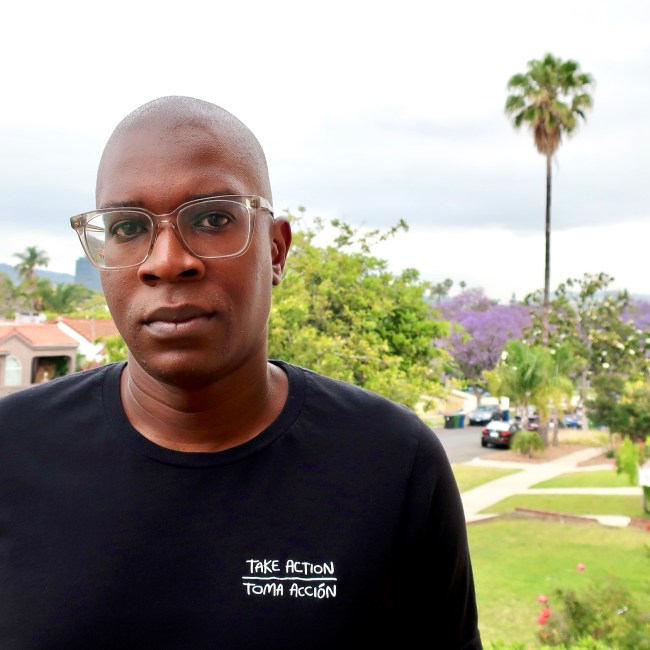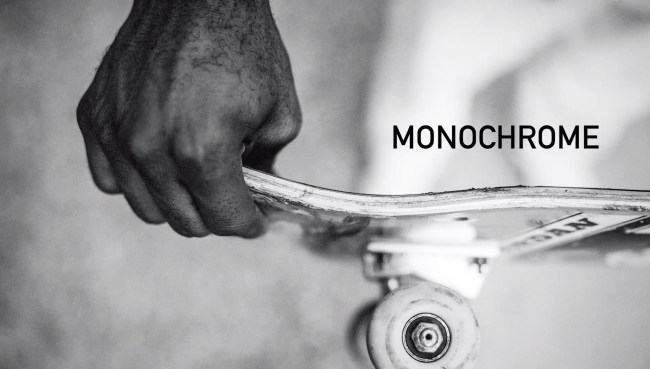
Presented in partnership with The Undefeated on ESPN+
In June 2020, Los Angeles-based skateboarder and videographer Patrick Kigongo created a spreadsheet known as “The Black List” in the skateboarding community.
Kigongo, the co-host of the Mostly Skateboarding podcast, described The Black List as “a non-comprehensive list of Black-owned skate industry brands.” He made it available to all as a Google Sheet. It compiles Black-owned skate shops, Black-run skate organizations, and Black-owned skate brands across the world. It includes brands like San Antonio’s Full Send Wax, Tyler, The Creator’s Golf Wang, Greenville, Ohio’s Proper Gnar, and Atlanta’s Reach Skateboards, amongst scores of others, both large and small.
The project was born as a call-to-action for how the greater skateboarding community could help support Black-owned skate businesses in the wake of George Floyd’s murder and the ensuing racial justice protests around the world.
The Black List was widely shared and quickly took off, embraced as a resource for skaters to “put our money where our mouths are“, as Trans-World put it, and to “keep capital in the community.”
Skateboarding had an explosive year in 2020. Despite supply-chain woes, skate shops couldn’t keep inventory in stock – Demand for boards, trucks, and wheels skyrocketed thanks to pandemic boredom.
In an industry notorious for its white male stereotype, Kigongo’s Black List emerged as a small way for fellow skateboarders to help Black creators and Black skateboarders where it immediately resonates – with their wallet.
It also offered an opportunity for skaters to expand their horizons as consumers and check out new brands.
The Black skateboarding experience is explored in MONOCHROME, a new Black History Always special airing on ESPN+’s The Undefeated. Skating legends like Ray Barbee, Sal Barbier, Atiba Jefferson, Kareem Campbell, and Stevie Williams describe the comeupance of street skating in their own words, while modern trailblazers like Adrianne Sloboh, Samarria Brevard, and Zion Wright discuss their own unique experiences as skateboarding’s generational talent.
Related: Meet The Influential Black Skateboarders Ushering In A New Era For The Sport
I recently talked to Kigongo about The Black List and its continued cultural impact, one year later.
Why skate shops are so important to skateboard culture…
PATRICK KIGONGO: A skate shop is more than just a retail hub.
It is the eyes and ears of a neighborhood – It is a social club of sorts. It can even be considered an after-school program.
Especially for an established neighborhood skate shop, which has a close community with skaters. That’s where people go to find information, that’s where if I’m going if I’m coming from out of town.
They are a hub of information. They can serve as an incubator; not only for the local skate culture but also for global skate culture – especially now that people are really keen on local shops. For example, when I was in Libson and Porto, I went to the local skate shop to find out the good skate spots.
It could be LOTTIES, which used to be here in West Adams. Or Labor, which has locations on Canal Street and Brooklyn, as well as in Tenant in Brooklyn. Crushed in Washington, DC. We could go on all day…
In the age of the hypebeast, your local shop might be the one that gets a drop from a certain company and hooks you up.
The importance of small business in skateboarding
PATRICK KIGONGO: I think last year, the pandemic really put this emphasis on small businesses.
Skate shops really make their existence of the margins, so there was a concerted effort of people saying ‘Hey, don’t order your stuff online. Don’t just order this from a conglomerate. Don’t order direct from Nike or Adidas.’
If your shop has taken the time to establish an account with a big shoe company – go buy shoes from that shop. Buy a shop t-shirt, buy some shorts, and buy some stickers. Buy things like that. That’s how they stay in business. Keep that shop open because the shop does a lot. There’s a lot of unseen labor associated with the shop for the community. And I think that’s why they’re so important.
The origins of The Black List
PATRICK KIGONGO: So a good friend of mine, who I skate with here in LA is a labor organizer. He works for the Teamsters. And we were brainstorming quite a bit as the George Floyd protests had really kicked off. We were talking about what steps the industry needs to make to diversify.
Even though skateboarding is for everybody, the skateboard industry still remains relatively white, middle-class, and centered around California.
Because of the lack of transparency into the industry, it can be difficult for people who don’t have inside information or close connections with those companies or distributors to figure out how to open a shop – how to set up an account with a certain brand, how to get boards screened, how to set up a wheel company, etc.
In the interim, there was so much attention to wanting to support Black book stores, Black bakeries, Black restaurants.
We said… ‘What about Black skate shops? Black skateboard clothing companies? Black people who were just doing cool stuff, organizing around skateboarding? Doing non-profits, meet-ups, and things like that…’
“I figured – okay, that’s the problem I want to solve for.”
PATRICK KIGONGO: It’s something I can do from home, it’s something that people want, and more importantly, it’s something that can grow…. Because I obviously did not have all these things off the top of my head.
I compiled as many as I could from memory, dropped it into Twitter and onto Instagram, and I was like ‘Hey, does anybody know Black-owned skateboard companies that I can add to this list? I’d love to share this out with people…’
SKATEBOARDERS: If you're looking for a chance to do the right thing, SHOP BLACK. I've created a list of Black-owned brands, businesses, and organizations in the skate game. DM me to add more. #skatetwitter #BlackTwitter https://t.co/uIV8BVWSKI pic.twitter.com/LhhBCB7vem
— Cousin P (@ColonelKSpeaks) June 4, 2020
It just grew from there.
I think it was something that people were looking for. I was trying to answer that call.
It may seem quite superficial and consumerist, but that’s what people wanted… They wanted to buy stuff.
If that meant putting some dollars in the hands of Black creators and Black skateboarders, I said more power to them.
It’s a step…
I think it was a step because the more difficult task is trying to take – hopefully, create a space for those people to network with each other and maybe a standard distribution company or at the very least start talking to each other as business people. That they’re not operating in silos.
The Impact of The Black List
Did people come together from it?
PATRICK KIGONGO: Yeah. There were a few women who had organizations and companies. One woman had a shop on the list and they put together a Zoom call – a public Zoom call – and they told all to come through.
I said, ‘Okay, this is exactly what I wanted to happen’ – people were taking that list and seeing people that were in their region and talking to each other. It was peak pandemic times, you have nothing better to do.
So, hey – why not? Establish some business relationships.
I also received a few messages and emails from folks who said, ‘Yeah, I received the uptick in orders this week, this month, or this last couple of months, or this quarter… Thank you for that. Thank you for that post.
I also hear from individuals – friends, family.
‘Thank you for putting this together. This is gonna be great for the holidays. Or, ‘hey, I wanted to get back into skating, I also wanna support Black people. Cool, I’m gonna use this. This is my guy. I’m gonna use this as my shopping list.’
So that made me feel really good because it was impactful on the industry side – or at least on the retail side – and it was also impactful on the consumer side.
People were able to start networking from that as well.
PATRICK KIGONGO: I think what was really exciting about it was seeing it re-posted from Thrasher, across Instagram, Trans-World – magazines that I had grown up reading.
The Dwindle Distribution included a physical copy of the list in a book about the history of skateboarding that went out by one of their employees.
That was really gratifying. It really made me feel like I was making a little bit of a difference.
I know that there’s an incredible amount of work that needs to be done. I think this year is where the rubber meets the road.
This year is where it’s not just about the feel-good quotient; the difficult conversations have to continue.
But the fact that I was able to create a bump on business and the fact that the list was an easy lift….
Anybody could do this.
That came from my love of punk culture. Anybody can do it. It was just a Google Sheet.
I mooted the idea of maybe standing up a website, but I said ‘No, no, no, no, no, no, no.’
Keep it simple, something easy, shareable, and replicable.
—

